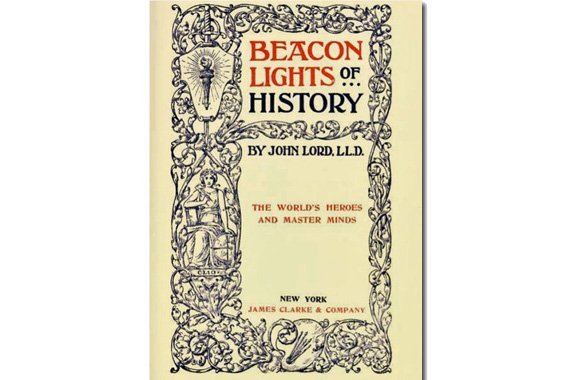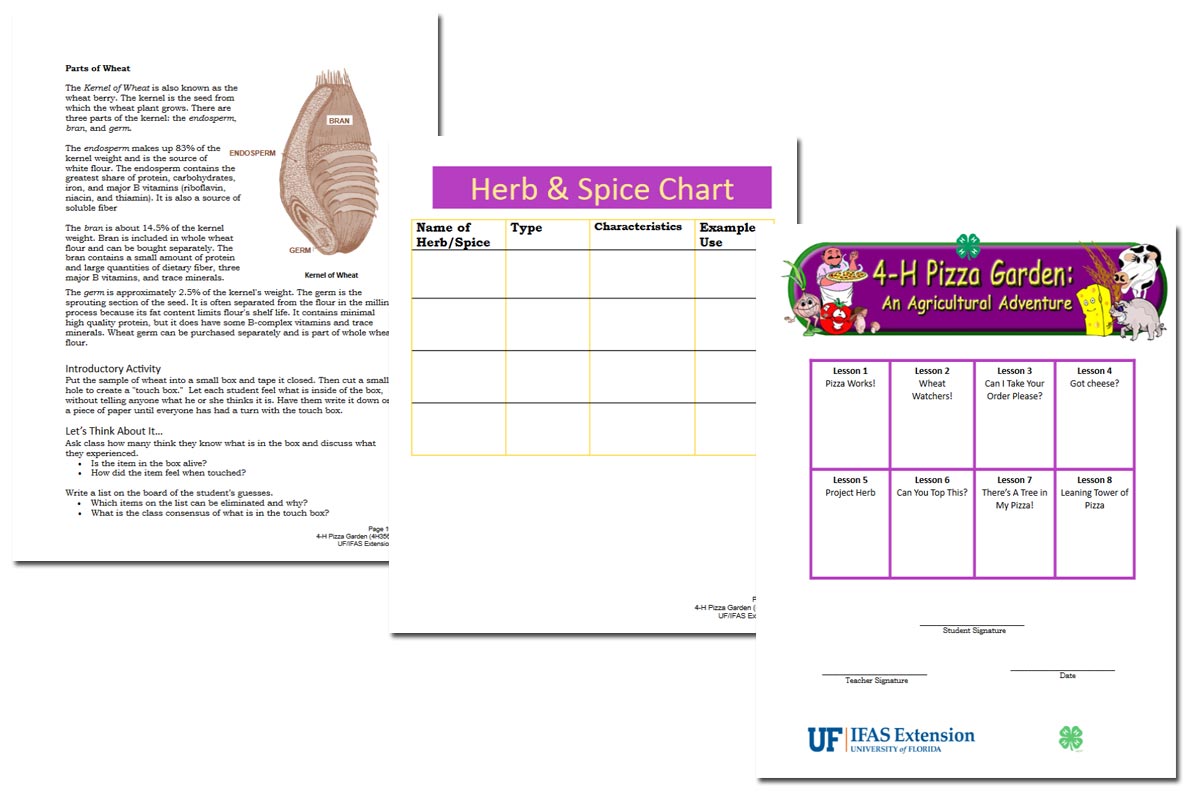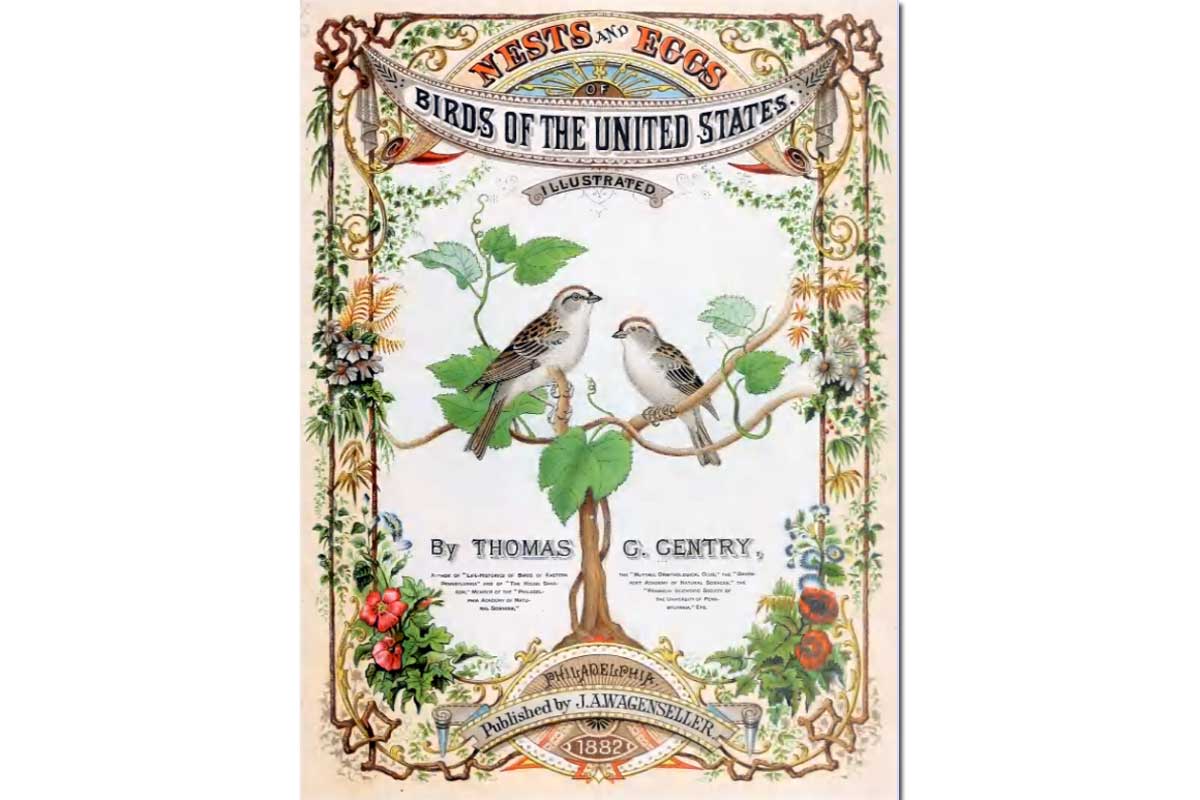
The Beacon Lights of History is a 12-volume series written by John Lord in the late 1800s to early 1900s. If you are looking for a history spine written from a Christian perspective, you’ll find the Beacon Lights an excellent world history “text” for the older student.
It has been my object in these Lectures to give the substance of accepted knowledge pertaining to the leading events and characters of history; and in treating such a variety of subjects, extending over a period of more than six thousand years, each of which might fill a volume, I have sought to present what is true rather than what is new.
Volumes 1-12 were written by Lord. Volume 13 was completed from his notes with missing pieces authored by other writers. The remaining volumes were written by other writers after his death, and cannot be as easily recommended.
Below are the contents of each volume to give you the flavor and depth of the series. Our tips for using the series are below.
Free eBooks:
Volume 1: The Old Pagan Civilizations
Ancient Religions: Egyptian, Assyrian, Babylonian, and Persian
Religions of India: Brahmanism and Buddhism
Religion of the Greeks and Romans: Classic Mythology
Confucius: Sage and Moralist
Ancient Philosophy: Seeking After Truth
Socrates: Greek Philosophy
Phidias: Greek Art
Literary Genius: The Greek and Roman Classics
Volume 2: Jewish Heroes and Prophets
Abraham: Religious Faith
Joseph: Israel in Egypt
Moses: Jewish Jurisprudence
Samuel: Israel Under Judges
David: Israelitish Conquests
Solomon: Glory of the Monarchy
Elijah: Division of the Kingdom
Isaiah: National Degeneracy
Jeremiah: Fall of Jerusalem
Judas Maccabaeus: Restoration of the Jewish Commonwealth
Saint Paul: The Spread of Christianity
Volume III: Ancient Achievements
Governments and Laws: Greek and Roman Jurisprudence
The Fine Arts: Architecture, Sculpture, Painting
Ancient Scientific Knowledge: Astronomy, Geography, Etc.
Material Life of the Ancients: Mechanical and Useful Arts
The Military Art: Weapons, Engines, Discipline
Cicero: Roman Literature
Cleopatra: The Woman of Paganism
Pagan Society: Glory and Shame
Volume IV: Imperial Antiquity
Cyrus the Great: Asiatic Supremacy
Julius Caesar: Imperialism
Marcus Aurelius: Glory of Rome
Constantine the Great: Christianity Enthroned
Paula: Woman as Friend
Chrysostom: Sacred Eloquence
Saint Ambrose: Episcopal Authority
Saint Augustine: Christian Theology
Theodosius the Great: Latter Days of Rome
Leo the Great: Foundation of the Papacy
Volume V: The Middle Ages
Mohammed: Saracenic Conquests
Charlemagne: Revival of Western Empire
Hildebrand: The Papal Empire
Saint Bernard: Monastic Institutions
Saint Anselm: Mediaeval Theology
Thomas Aquinas: The Scholastic Philosophy
Thomas Becket: Prelatical Power
The Feudal System
The Crusades
William of Wykeham
John Wyclif: Dawn of the Reformation
Volume VI: Renaissance and Reformation
Dante: Rise of Modern Poetry
Geoffrey Chaucer: English Life in the Fourteenth Century
Christopher Columbus: Maritime Discoveries
Savonarola: Unsuccessful Reforms
Michael Angelo: The Revival of Art
Martin Luther: The Protestant Reformation
Thomas Cranmer: The English Reformation
Ignatius Loyola: Rise and Influence of the Jesuits
John Calvin: Protestant Theology
Lord Bacon: The New Philosophy
Galileo: Astronomical Discoveries
Volume VII: Great Women
Heloise: Love
Joan of Arc: Heroic Women
Saint Theresa: Religious Enthusiasm
Madame de Maintenon: The Political Woman
Sarah, Duchess of Marlborough
Madame Recamier: The Woman of Society
Madame de Stael: Woman in Literature
Hannah More: Education of Woman
George Eliot: Woman as Novelist
Volume VIII: Great Rulers
Alfred the Great: The Saxons in England
Queen Elizabeth: Woman as a Sovereign
Henry of Navarre: The Huguenots
Gustavus Adolphus: Thirty Years’ War
Cardinal Richelieu: Absolutism
Oliver Cromwell: English Revolution
Louis XIV: The French Monarchy
Louis XV: Remote Causes of Revolution
Peter the Great: His Services to Russia
Frederic the Great: The Prussian Power
Volume IX: European Statesmen
Mirabeau: The French Revolution
Edmund Burke: Political Morality
Napoleon Bonaparte: The French Empire
Prince Metternich: Conservatism
Chateaubriand: The Restoration and Fall of the Bourbons
George IV: Toryism
The Greek Revolution
Louis Philippe: The Citizen King
Volume X: European Leaders
William IV: English Reforms
Sir Robert Peel: Political Economy
Cavour: United Italy
Czar Nicholas: The Crimean War
Louis Napoleon: The Second Empire
Prince Bismarck: The German Empire
William Ewart Gladstone: The Enfranchisement of the People
Volume XI: American Founders
Preliminary Chapter: The American Idea
Benjamin Franklin: Diplomacy
George Washington: The American Revolution
Alexander Hamilton: American Constitution
John Adams: Constructive Statesmanship
Thomas Jefferson: Popular Sovereignty
John Marshall: The Supreme Court (by John Bassett Moore)
Volume XII: American Leaders
Andrew Jackson: Personal Politics
Henry Clay: Compromise Legislation
Daniel Webster: The American Union
John C. Calhoun: The Slavery Question
Abraham Lincoln: Civil War and Preservation of the Union
Robert E. Lee: The Southern Confederacy (by E. Benjamin Andrews, LL.D)
Suggestions
- Older students can use the books as a spine. By covering one subtopic per volume per week, a student can work through the entire series in approximately three years. Ways to round out the studies include:
- Add a biography. All Through the Ages can get you started.
- After reading the material, have your student narrate back to you (orally or in writing) the points of interest, main ideas, and other information to be gleaned. (This always works best if you read ahead of him so that you can discuss the finer points.)
- Focus on points of comparison and contrast. For example, compare and contrast American Statesmen to European Statesmen, American Leaders to European Leaders, the French Revolution to the American Revolution, Protestant Reformation and English Reformation, etc.
- Map locations as they are encountered.
- Keep a notebook containing maps, written narrations, and other work the student completes while working through the series.
- Apply some of the concepts presented to our modern-day world. Do you see some of the same ideas being played out?
- Think about some of the causes and effects presented. Do you see similar “causes” today? If history is a guide, what will be the effect?
- Determine a rough date for each subtopic and add these to your chronological reading list.
- Another option is to simply add the series to your family read-alouds, covering one or two topics per week. Perhaps your children will find their interest sparked enough to pursue more on their own!










You must be logged in to post a comment.